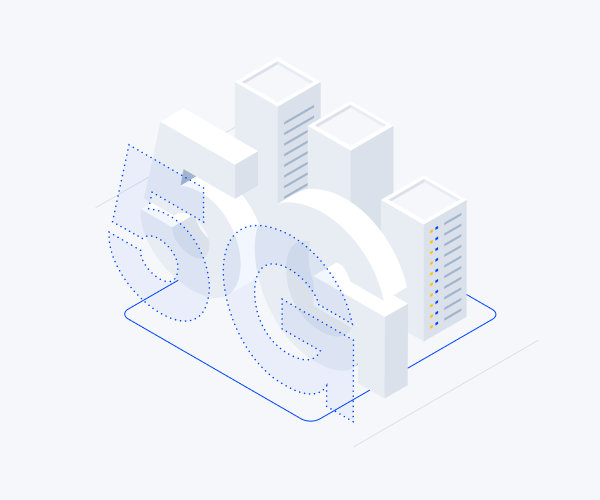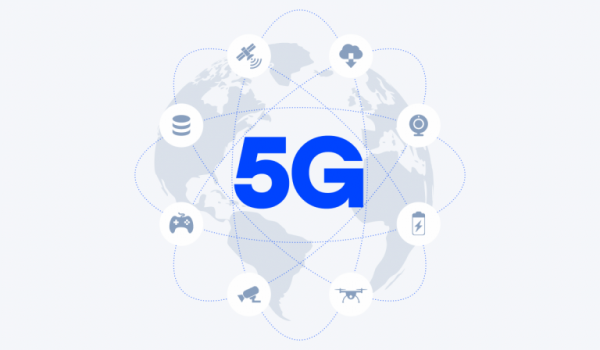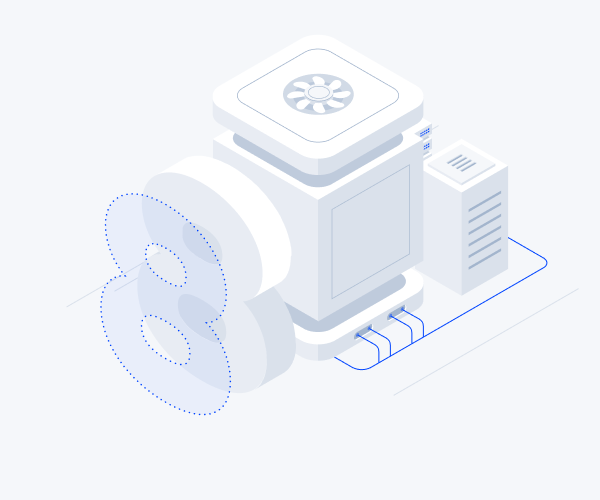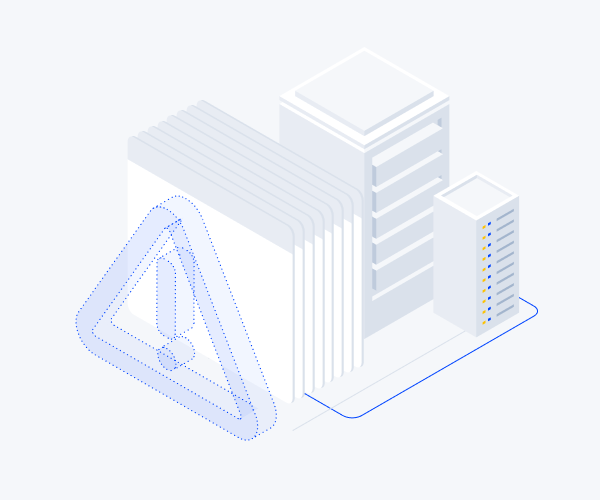5G a threat to cloud computing? The future of the cloud at the dawn of fast connectivity

The dynamic nature of technology makes it impossible to define the pivotal components that drive technology towards its full potential. But, it’s logical to state that cloud computing and 5G will be among the technologies that play a major role in future technological advancements. The rollout of the 5G network started in 2019 and has accelerated in 2020, with GSMA projecting that the new technology will account for 1.2 billion connections by 2025.
Despite the infinite benefits that 5G may have on the existing technologies and business models, including faster speeds, network efficiency, and low latency the “Dark side” of the 5G network has taken over the internet by storm. There have been baseless theories and hoxes based on information security and health concerns. This has been destruction to the questions we should be asking. How will 5G change the cloud? How will enterprises be affected by the technology? And what can the major players in the tech industry do to usher in the new era?
Let’s find out how cloud computing will blend in the age of 5G.
A Sneak Peek Into 5G
5G denotes the 5th generation of wireless network technology that is expected to spark innovation and revolutionize civilization. It will achieve this by providing increased bandwidth and providing lower latency. This will open up more opportunities for innovation in sectors such as IoT and AI, which depend on high-speed data processing. The speed of 5G will be much faster (1.8Gbits/Sec) compared to 4G due to the use of higher-frequency radio waves. This is no doubt the dawn of a new world.
It is yet difficult to predict how 5G will coexist with other concepts of computing such as cloud computing, IT security, IoT, and Machine learning.
How 5G Could Revolutionize the Cloud
As you know already, cloud computing has become a very important part of our lives, and it's here to stay. Apart from connecting us to our loved ones, cost savings in personal and enterprise environments, flexibility, security, and many other advantages, it has opened a lot of other possibilities that were considered impossible about three decades ago. The integration of 5G into cloud infrastructure will help tap into the unexplored territories of computing hence making our lives better. Here are some of the ways that 5G may take cloud computing to a whole new level:

Increase of Hybrid Popularity
Information security is always the major concern that makes businesses doubt the public cloud. Latency also plays a major role in firms preferring an on-premise cloud, as opposed to the public cloud. But, the future of the hybrid cloud is bright with 5G. The most logical decision for businesses is to store data on-premise, and operate on the public cloud. Not only does this increase cost-effectiveness, but also scalability and innovation. If your firm intends to capitalize on this rare opportunity, you can check Serverspaces’ Cloud Infrastructure solutions before the competition for cloud infrastructure bumps up the quality and prices
Cloud Computing For Everyone
This is the obvious transformation of cloud computing in the 5G era. By utilizing the high-speed and low latency of 5G, cloud computing will be accessible to many people and businesses on the planet. One of the major problems that face the cloud is low latency, hence inaccessibility from poorly connected areas. 5G will eradicate all that and make cloud computing available to every business and person that was locked out due to unreliable connections.
The Rise of Edge Computing
The edge is the new black in computing and its future is unpredictably amazing. Edge computing is an emerging topology-based model that facilitates decentralization by placing nodes close to data sources. Traditionally, the flow of data increased security threats, which is very challenging to industries where data privacy is critical. “Every time you move a piece of data, you increase the risk of it being stolen” states IBM edge computing CTO, Rob High. The edge, thus, eliminates this risk by increasing agility in business. Gartner projects that by 2022, 50% of enterprise-data will lean towards the edge.
Rob High. IBM Edge Computing CTO:
"Every time you move a piece of data, you increase the risk of it being stolen."
Real-time analytics and Increased Streaming Activities
Cloud computing is the pivot of big data. 5G will not only revolutionize the data processing speeds but also catalyze the expansion of storage capacity for big data. This will drop every problem faced by streaming and real-time analytics service providers.
Transformation of IoT
One of the main ways 5G will improve IoT is by providing reliable access to cloud infrastructure. Since many companies are already embracing the power of Artificial intelligence (AI) and natural language processing (NLP) in their operation, 5G will help them increase effectiveness by giving them access to edge-cut computing power. This will improve communication between connected devices such as laptops, sensors, smartphones, etc. Thus IoT is one of the many industries which will benefit heavily from the 5G evolution. Concepts such as Virtual Reality and Augmented (VA/AV) which depend heavily on data to be effective will also rip many benefits. With the 5G breakneck speeds and low latency, the sky is the limit to IoT.
Cloud Security In The Age of 5G
Many enterprises prefer to take a ‘Security First’ approach when implementing new technologies or business models into their operation mechanism. As expected, 5G has the most sophisticated security protocols and security precautions embedded in its architecture. By using technologies (cloud services, network slicing, eSIMs, Virtualization, and AI), secure by design approach, secure deployment models, and other security precautions, 5G is prepared to counter any threats that await. However, despite all these security precautions, chances of threats penetrating through the 5G core are very high. First, switching the network infrastructure between 4G,3G and 5G increases threat risks. Furthermore, running 5G on 4G infrastructure risks carrying existing threats forward to the new network. Despite standard bodies such as IETF, ETSI, and 3GPP working on the standards, there are no dependable standards to govern 5G security. The need for 5G security is real, and it’s a shared responsibility. Everyone has a role to play from mobile providers, cloud service providers, and enterprises. It is also important to prepare your firm for the 5G cyber wave. Serverspace is aware of this, and is at the forefront of this revolution, making that your cloud infrastructure is safe.
Embracing The Change
The evolution of technology is something that will last for eternity, and it’s up to enterprises and major tech players to help their customers to embrace the changes that come. As said earlier, it is almost impossible to predict how 5G will affect other computing concepts once the rollout is complete. Some even believe that 5G may annihilate the cloud, which seems far stretched but possible. It is thus upon cloud service providers to face the challenge head-on thus ushering an innovative world.





